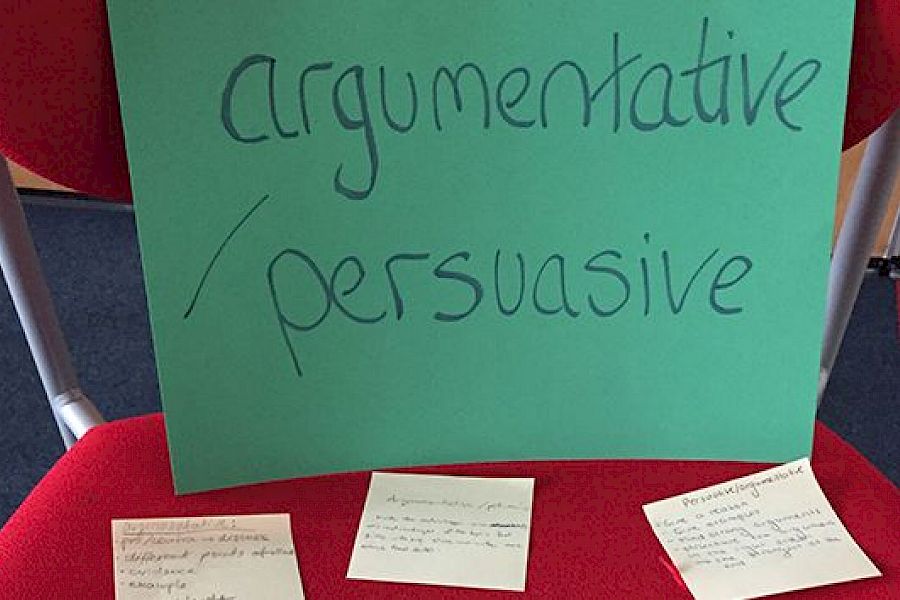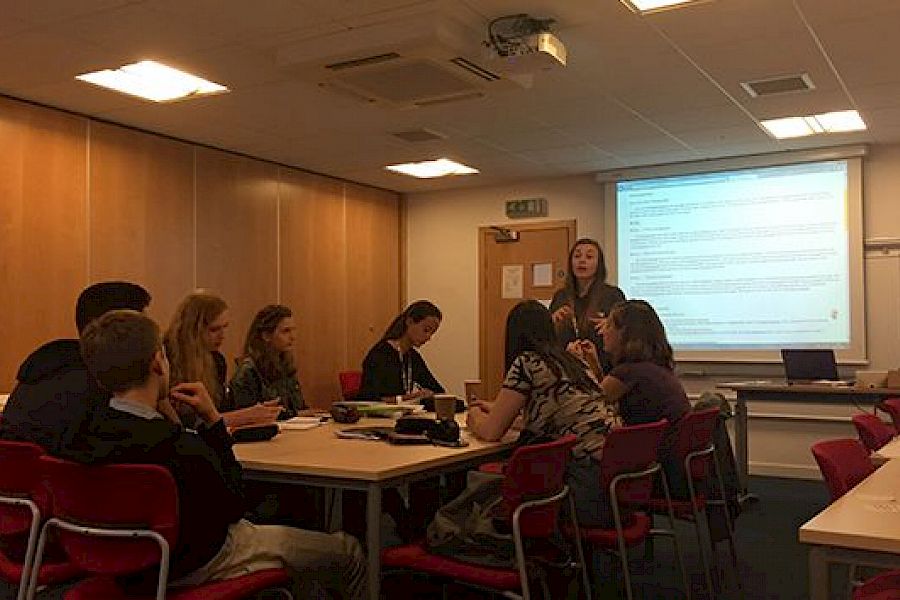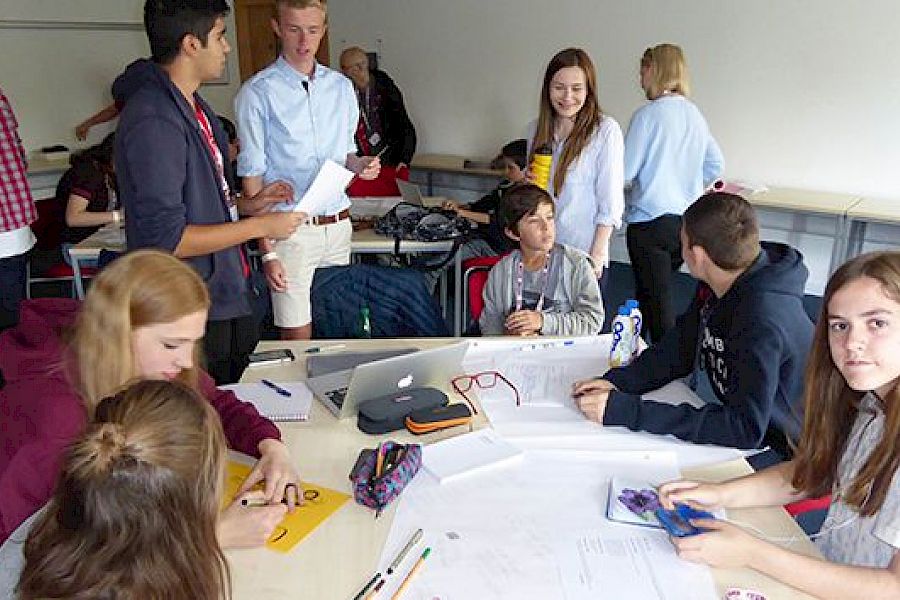
Pre-Intermediate English At ISSFT
Overview
Pre-intermediate English
Our students work in small groups to build confidence in all aspects of the English langage
About this class
Small class sizes with full English immersion encourage students to become proficient in grammar, vocabulary, pronunciation, speaking, listening, reading, writing and colloquial English.
Our classes cover:
- 39 hours of dedicated English language tuition
- Tuition delivered by qualified CELTA/TEFL English teachers
- Students will have the daily opportunity to practice speaking in structured conversations
- Lessons will be project orientated and will require students to present information to the class, using their spoken language skills
- Students will read from modified texts and will learn various strategies to assist with comprehension. They will also develop analytical skills to interpret literature and images.
- Students will be writing on a daily basis, practicing grammar structures and learning new vocabulary. They will write a variety of personal narratives, descriptions, reports, poems and creative fiction.
Learning outcomes for all classes are to see our students grow in confidence and develop their overall communication skills.
Learning Outcomes
We expect all students to engage with course concepts by thinking, reading, writing and participating to the best of their ability.
This will include working as part of a team and also as an individual.
We provide constructive feedback on course work and engage students in conversation. A final report is drafted once the class has been completed which documents what was covered in class, areas for development, strengths and individual contribution.
English Level Assessment
We use the Common European Framework of Reference for Languages in relation to all learning, teaching, and assessment.
Beginners are generally A1-A2, Intermediate B1-B2, Advanced C1-C2.
Students will be assessed at the beginning of the course to ensure that they are placed in the class most appropriate to their level. We encourage intermediate to advanced students to consider enrolling in courses such asGlobal Entrepreneurship, Intro to Law and Study Skills as these classes encourage students to think and communicate as a native speaker through a subject which they already have an interest in.
Common European Framework of Reference for Languages
Can understand with ease virtually everything heard or read. Can summarise information from different spoken and written sources, reconstructing arguments and accounts in a coherent presentation. Can express him/herself spontaneously, very fluently and precisely, differentiating finer shades of meaning even in more complex situations.
Can understand a wide range of demanding, longer texts, and recognise implicit meaning. Can express him/herself fluently and spontaneously without much obvious searching for expressions. Can use language flexibly and effectively for social, academic and professional purposes. Can produce clear, well-structured, detailed text on complex subjects, showing controlled use of organisational patterns, connectors and cohesive devices.
Can understand the main ideas of complex text on both concrete and abstract topics, including technical discussions in his/her field of specialisation. Can interact with a degree of fluency and spontaneity that makes regular interaction with native speakers quite possible without strain for either party. Can produce clear, detailed text on a wide range of subjects and explain a viewpoint on a topical issue giving the advantages and disadvantages of various options.
Can understand the main points of clear standard input on familiar matters regularly encountered in work, school, leisure, etc. Can deal with most situations likely to arise whilst travelling in an area where the language is spoken. Can produce simple connected text on topics which are familiar or of personal interest. Can describe experiences and events, dreams, hopes and ambitions and briefly give reasons and explanations for opinions and plans.
Can understand sentences and frequently used expressions related to areas of most immediate relevance (e.g. very basic personal and family information, shopping, local geography, employment). Can communicate in simple and routine tasks requiring a simple and direct exchange of information on familiar and routine matters. Can describe in simple terms aspects of his/her background, immediate environment and matters in areas of immediate need.
Can understand and use familiar everyday expressions and very basic phrases aimed at the satisfaction of needs of a concrete type. Can introduce him/herself and others and can ask and answer questions about personal details such as where he/she lives, people he/she knows and things he/she has. Can interact in a simple way provided the other person talks slowly and clearly and is prepared to help.
More Academic Classes

English Academic Writing
English Literature with Creative Writing

Environmental Sustainability

Global Entrepreneurship

Global Leadership

Intensive English Language

Intermediate English, IELTS

Introduction to Law


